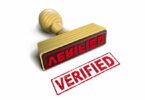South Korea’s KT Corp, the country’s largest telecoms company, has launched a blockchain-based document platform called Paperless, according to a Korea IT Times report. The solution allows users to create, share and store electronic documents.
While digitization has numerous advantages, there are few tools available to verify the authenticity of digital information and that a document hasn’t been changed. KT Corp is leveraging blockchain to ensure the immutability of data, from the point of document creation to storage.
The Paperless platform, aimed at enterprise users, offers three services — drawing up a contract, registration of the document, and electronic storage.
“We expect KT Paperless Service to reduce corporate document management and costs so that it will improve the business process as well,” said Yoon Dong-sik, EVP of KT Cloud/DX Business Group, told Korea IT Times.
Using the platform, users can create new contracts or digitize existing agreements. A third-party Time-Stamping Authority (TSA) will provide a verification service before the contract goes on the blockchain.
After a contract is drawn up, parties need to sign them. Conventionally, this is done using emails or courier, which causes delays and can introduce the risk of fraud. A broker or any other document registrar will enable users to sign documents digitally, much like it is currently done with an e-signing process. Here, an essential factor is the verification of the identity of the user.
Lastly, the platform provides a document storage service.
Overall the solution could reduce disputes between companies and provide better auditability of records.
To this end, KT has launched a portal for its document blockchain and does not require users to download any app or software, although they can optionally. Additionally, Paperless can integrate with existing document systems using APIs, reducing the cost of adoption. The company did not clarify which blockchain protocol it was using.
Charges for creating a contract are Won 1,650 each ($1.35).
KT Corp is quite active in the enterprise blockchain space and is exploring the technology for local currency, digital identity, and inter-carrier payments. It is a member of the Carrier Blockchain Study Group (CBSG) consortium.
Among similar initiatives to KT’s, Ernst & Young is using blockchain to verify public documents for the City of Vienna. Most recently, the UAE’s Ministry of Community Development switched to a blockchain system from paper documents in a bid to encourage social distancing during the Covid-19 pandemic.
There are also multiple initiatives for creating automated legal contracts that self execute payments. These include the Accord Project, its founder Clause, OpenLaw and the Agreements Network.






